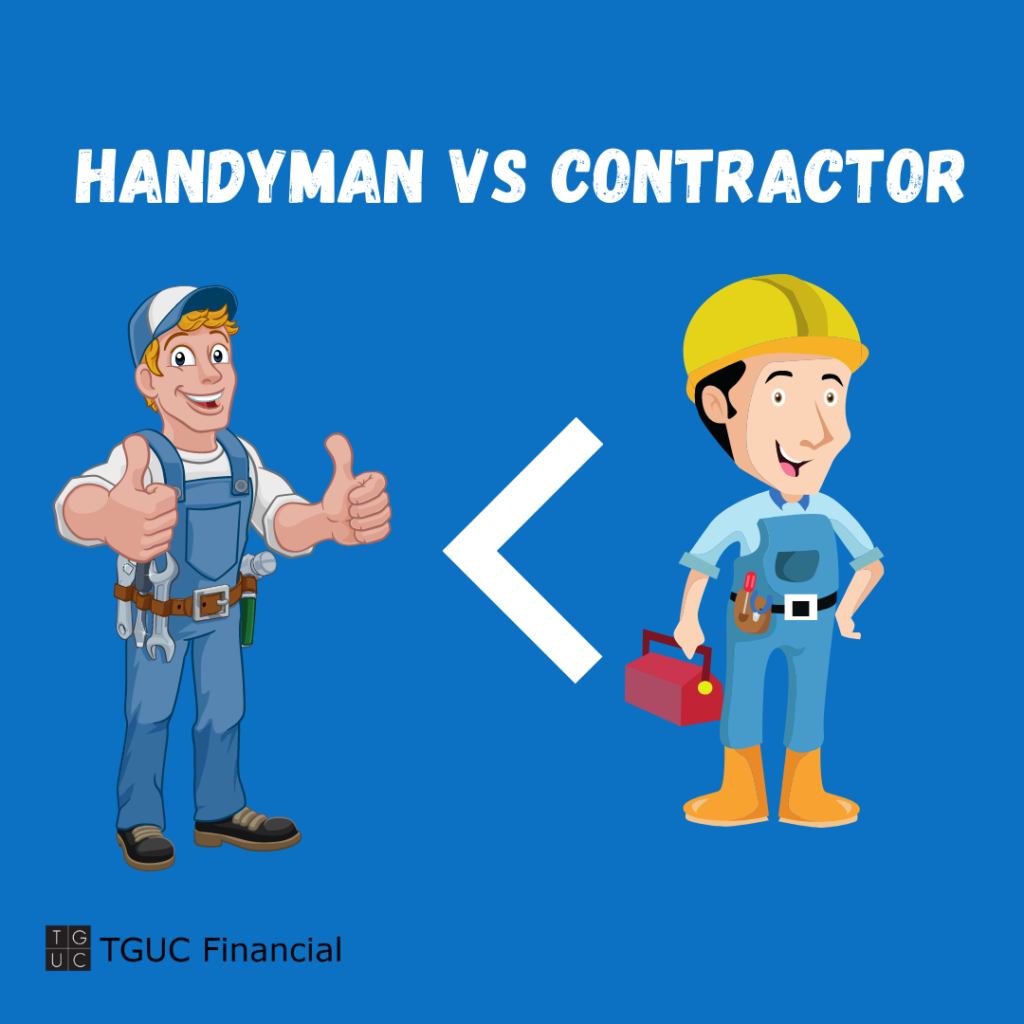A professional contractor should have a home improvement license to qualify for every renovation. Homeowners do renovations and improvements to increase the value of their homes. A professional home renovation by home improvement contractors can increase the net worth of a house exponentially. A home improvement contractor should have a proper license from the contractor’s licensing board and pass the requirements of the state.
Homeowners who use licensed and insured contractors for their home improvement projects have the assurance that their building will be up to code, meeting state and local requirements for safety, permits, zoning, etc. If you are a home improvement contractor without a license, this article will show you more about the licensing requirements and building permits for different states and locales. This knowledge and the required certificates also can help to protect the certified contractor from litigation.
How to Get a Home Improvement Contractor License?

Generally, a home improvement contractor should have years of experience, liability insurance, and bond when they apply for a home improvement license. Nevertheless, license requirements for home improvement contractors differ from one region to another. If you are planning to do large home renovations, a licensed contractor is a better option compared to the handyman.
Registration and Licensing Board
Every state has a registration and licensing board to qualify the contractors for their work. For instance, the Wisconsin Department of Safety and Professional Services is the licensing board for general contractors in that particular state in the US. However, the registration and licensing board differ for every state: so a Wisconsin state license will probably not be valid for say, California.
Handyman vs Contractor: What is the difference?

If a homeowner has small renovation or repair works necessary, they may find it easiest and most efficient to hire a handyman. On the other hand, a professional contractor handles large renovations and complex works like home additions, extensions, and electrical works.
Different Types of Contractors License
Residential Contractor License
The residential builders’ license is based on home renovation, repair, and projects revolving around residential occupancy. If you want to obtain a residential contractor license, your expertise and experience should be based on homes and residences – these have different requirements than a business.
Commercial Contractors License
Contractors that take up business-related projects are commercial contractors. Commercial contractors work with housing complexes, restaurants, malls, art galleries, and more. The commercial license should have experience in constructing business-related projects and qualify for the exams by the contractors licensing board.
Specialty Contractors License
A specialty contractor license requires proven competency in a particular field. If you are applying for a specialty contractor’s license, you should pass the exams related to the particular field. A specialty contractor might be an expert in building, freeways, bridges, home additions, and roofing.
General Contractor Requirements for the Different States
As mentioned above, a general building contractor license requirement differs from one state to another. Some of the common requirements to obtain general contractors’ license are passing relevant exams, having experience in the relevant fields, and liability insurance. Some states have more rigid requirements than others for certain things. For instance, in the state of California, which is prone to heat and fire hazards, the regulations around wood-burning stoves are much stricter than in a cold, snowy state like Alaska.
We’ve chosen 6 states in the US to examine how their licensing requirements differ.
1. Florida General Contractor License
A general contractor in Florida should have at least one year of experience. Home improvement contractors should have worked on buildings that are not more than 4 stories high. Contractors will also have to pass exams and provide a financial statement. Experience in relevant projects is significant while applying for the license. Most importantly, proof of general liability and workers’ compensation insurance is required as well.
- The General contractors should have 660 FICO Credit Score.
- Florida State Construction Exam qualifies the contractor based on the percentage.
- The applicants can apply for building, residential and general contractor licenses.
Fee Details:
| Certified General Contractor | The application fee varies from the month of submission: $309 |
| Registered General Contractor | The application fee varies from the month of submission: $209 |
2. Utah General Contractor License
Firstly, Utah contractors should have experience in relevant remodeling works to obtain a license. Some renovation experience expected may be as follows: Carpentry, General Masonry, Steel Erection, HVAC (Heating, Ventilation, and Air Conditioning).
Contractors should have liability insurance and workers’ compensation insurance to apply for the license. If a contractor is applying for residential projects, the work experience should be related to it. Licensing requirements vary for both residential and commercial projects.
- The Arizona, South California, Nevada’s license requirements are similar to the Utah general contractors license.
- Contractors should have completed a course in UHB(Utah Home Builders). The course should be 25 hours pre license course.
- Home remodeling contractors require a surety bond.
- Minimum 2 years experience are required to be a licensed contractor in Utah.
Fee Details:
| Application Fee for New Applicant | $225.00 |
| Additional Classification Application Fee | $175.00 |
| Business Registration Fee | $70.00 |
3. Wisconsin General Contractor License
Wisconsin Department of Safety and Professional Services is the Wisconsin Licensing board and provides general contractors licenses. Home improvement contractors in Wisconsin can also obtain licenses for plumbing, electrical works, well drilling, and installing HVAC systems.
Apart from the general requirements such as liability insurance and years of experience in relevant works, contractors have other various requirements in Wisconsin. The contractors licensing process in Wisconsin is strict compared to the other states.
Dwelling Contractors License
If you are applying for a dwelling contractor’s license, you should qualify for the dwelling contractors exam. A business license is necessary for those who are applying for contractor business. If you have applied for a contractor’s license, you should also pass the Wisconsin general contractor exam should also apply for dwelling contractors exam.
- The general contractor in Wisconsin should obtain a license from Wisconsin Dwelling Contractor Qualifier licensing process.
- The Dwelling Contractor license is also necessary to obtain the general contractor license.
- A contractor should apply for a 12 hour initial training course.
- The application for the contractors requires a business license as well.
Fee Details:
Qualifier License for Dwelling Contractor
| Training Course Fee | Depending on the provider of the course. |
| Application Fee | $15 |
| Credential Fee and Renewal Fee | $30(For the renewal fee, the contractor should take up another 12 hours of course). |
4. Arizona General Contractor License
General contractors in Arizona should pass a PSI exam to qualify for the license. General contractor license requirements in Arizona will get qualified by the Arizona Registrar of Contractors(ROC).
People applying for contractors’ licenses in Arizona are required to pass a PSI exam by 70% for both residential and commercial licenses. The compensation should cover two-thirds of the employee’s monthly income. A contractor should have more than four years of experience to obtain a license in Arizona.
- General contractors should obtain a ‘qualifying party’ to apply for the license.A qualifier represents the contractors abiding by the laws and regulations of government agencies.
- The qualifying party that represents the contractors should pass the BME(Business Management Exam)
- The contractor should reach out to the bonding company to get a surety bond.
- Submissions of government issued IDs are necessary to get the license.
Arizona application fee varies depending on the classification of the license.
Fee Details:
| General Residential | $180 |
| Specialty Residential | $80 |
| General Dual | $200 |
| Specialty Dual | $100 |
5. North Carolina General Contractor License
North Carolina general contractors’ licenses come with the requirements of bond and insurance. The NC licensing board of general contractors will qualify them for the license.
Contractors should appoint a qualifier and pass an exam. A contractor in North Carolina can apply for limited, unlimited, and intermediate licenses with various requirements. North Carolina contractors should also get a business license while applying for a general contractor license. After the board checks the obtained insurance bonds, financial information, and limitations, the contractors will get qualified for PSI exams.
Fee Details:
- The individual projects under the limited license in North Carolina should not go beyond $500,000.
- Intermediate license should not go beyond $1000,000.
- The unlimited license can have different projects and has no requirements.
| Limited License Fee | $75 |
| Intermediate License Fee | $100 |
| Unlimited License Fee | $125 |
6. New Mexico General Contractor License
The New Mexico Regulation and Licensing Department offer licenses for a general contractor. A New Mexico Regulation contractor should be bonded and insured to obtain a qualifying party.
New Mexico Contractors should have two years of experience for residential projects and four years of experience for general building. After checking the years of experience and general work experience affidavit, the contractors will get qualified for PSI exams. New Mexico General Contractors need not worry about liability insurance.
- Classification determination is significant to qualify for the New Mexico license.
- Work experience affidavit is one of the requirements for the Mexico contractor license.
- The PSI administrator plays a vital role in qualifying for the general contractor license in the Mexico.
| Contractor Application Fee | $30 |
| Contractor Certification Fee | $6 |
| Qualifying Party Application Fee | $30 |
| Qualifying Party Certification Fee | $6 |
Are Contractors Licensed and Insured?
Homeowners should check licensed remodeling contractors to do their renovation works perfectly. A background check is significant to choosing a credible home improvement contractor for your renovation works. For your home security and security, a licensed contractor is the best choice!
Nevertheless, doing a background check on every contractor being considered is time-consuming for homeowners. For this, you can use TGUC Financial’s help to find all remodeling contractors near you with a background check. TGUC Financial helps homeowners to find contractors for all home renovation and remodeling works. Whether it is a minor or major renovation, TGUC Financial will help you revamp your home with a professional contractor that you can trust.
Final Word
Planning on home renovation projects requires a lot of time and research. If you are a homeowner planning to renovate your home, you should find contractors with proper licenses and insurance to get your work done.
A home improvement contractor should pass all the requirements for every state to qualify for a home improvement project. A professionally renovated home will change the environment and create a beautiful space. Homeowners can also leave their projects to licensed residential contractors without worrying about hampering their home’s value. Whether it is residential or commercial work, a professional contractor with licensing and insurance is always a good choice!
Suggested Reads:
- 7 Valentine’s Day Home Improvement Ideas – 2022
- Home Improvement Loans for Senior Citizens
- DIY Home Improvement vs Contractors: Which is Best?
- Loans vs Grants for Home Improvement: Which is Best?
- 5 Things to Do If You Have Problems with Your House Contractor
Frequently Asked Questions
Are painters required to be licensed?
Yes, painters should carry liability insurance and painter insurance like workers’ compensation insurance to do renovation works. Painters should also have a minimum of years 4 of experience to get a painting contractor license.
How can I get credible home improvement professionals?
TGUC Financial helps homeowners to get renovation contractors with all background checks. The background check includes a check of a license, sub-contractors reference, and insurance to get home improvement professionals.
What is “licensed and bonded” in contractors’ requirements?
Getting licensed and bonded are two different things. The bond ensures that the contractor will finish the project within the contractor’s term. The surety bond will aid if the contractor leaves the project because of the issues like cash flow.
How long does a roofing contractor license application process take?
Roofing remodeling is one of the large home renovations. The application process will take up to three months.


Recent Comments